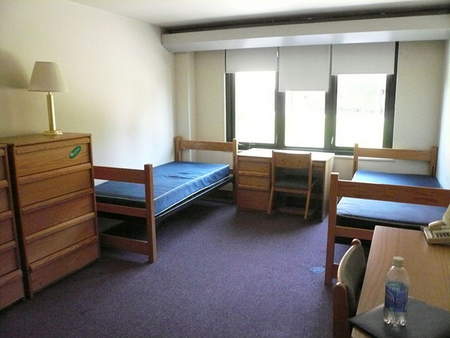Bringing light to the problem
Well how easy is it to turn the lights off in your room? I have found that it is not so hard when you are leaving the room for the day. The action of me turning off my lights when I leave the room has become a habit because when I was living at home my mom always used to say she “had to turn off the lights in the entire house”. After hearing this countless times I became aware of my problem and started correct this bad habit. However, with doing this project it has helped me rethink light conservation while I am in my room. I have found that when I am doing work during the day I deem it necessary to have the lights on. This is definitely not a necessity and I can successfully conserve this energy by opening my window shades and allow the natural light to illuminate my room.
Last night I was hanging out with some of my buddies and I attempted to implement one of my strategies to conserve the light usage. We were hanging out in my room and I turned off the main light and turned on my desk light. This small desk light does not offer optimal light for the room but does give off enough to see each other. One of my buddies mentioned to me that it was a little too dark in the room. It is tough to tell my friend that this lighting is fine the way it is. I went and turned on my light for a little bit of time to satisfy my friend’s suggestion. However, not too long after that I turned off the main light again and it seemed to suit the situation perfectly.
The study I found to be most useful for light conservation on college campuses was an interview from 2010 by Arizona State University’s senior technology support analyst Robert Vandling. In this interview he talks about the benefits of setting up an Energy Information System and the campuses overall use of energy. He set up a website that examines if the students turn off their lights and air conditioning in their rooms after class. Vandling’s website gives students the ability to monitor energy use on campus from a screen. This allows the community to determine if the university has an issue with energy usage. In finding out this information it can help students become proactive on the issue and change their behavior the benefit the overall consumption of energy. This study could be useful to benefiting my current behavior and my friends’ behavior because if we are aware of the problem we are more likely to change our harmful ways. Knowing that my behavior is a problem is key to helping me justify my behavior change and gives me the ability to see progress on the issue.
Vandling, Robert. Arizona State University. March 2010, Interview. Vol. 104 Issue 3, p9-9. 2/3p.

Leave a Reply